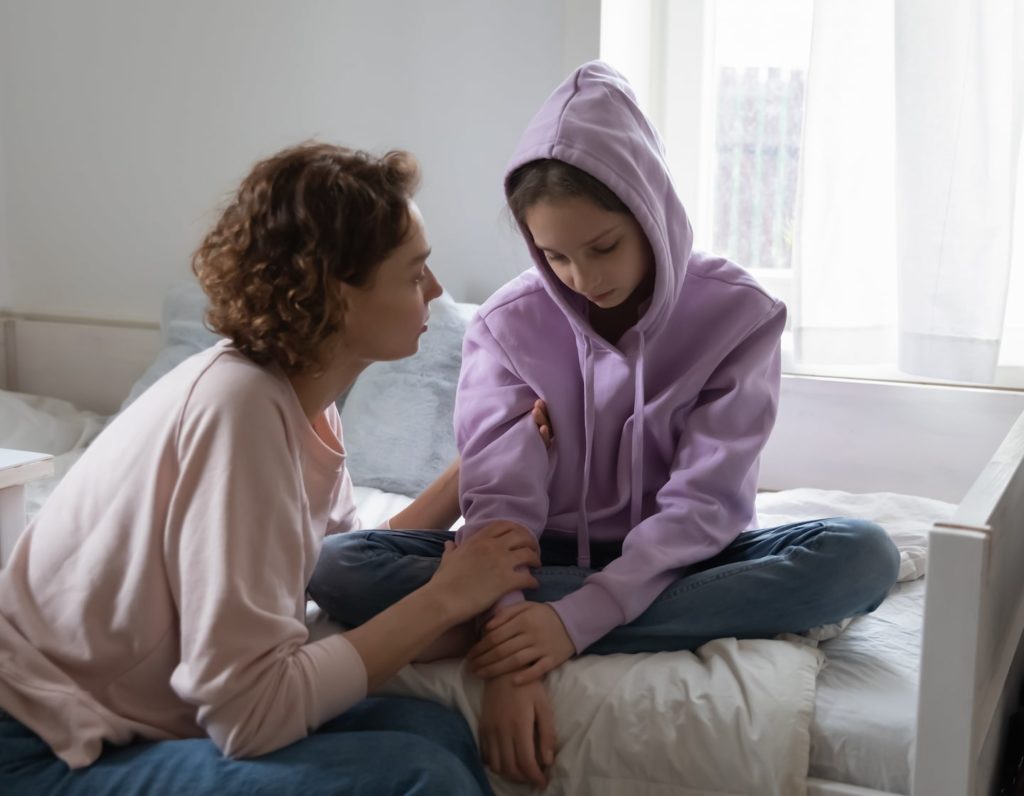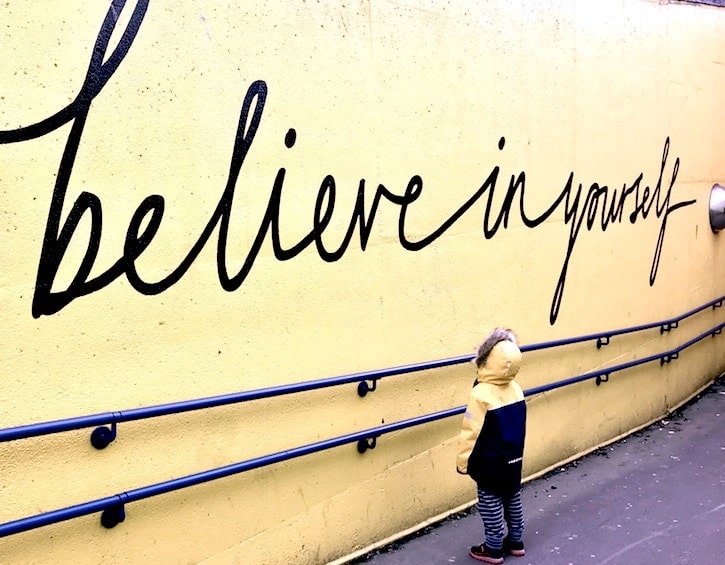
 Post Category - ParentingParenting - Post Category - 5-11 Year Olds5-11 Year Olds - Post Category - Tweens & TeensTweens & Teens
Post Category - ParentingParenting - Post Category - 5-11 Year Olds5-11 Year Olds - Post Category - Tweens & TeensTweens & TeensBeing a kid is tough business. Help your kid navigate the ups and downs of their worries and anxiety with these practical tips.
It’s World Mental Health Day on Monday, 10 October, 2022 and this year we’d like to shine a spotlight on our kids. Everyday life can take its toll on even the toughest of adults, so it’s completely understandable that our kids also have their difficult days. Navigating friendships, school and home life can be hard to juggle and so experienced psychotherapist and counsellor Cherrie Chung, of Insight Counselling, shares three ways to help your child deal with everyday anxiety.
Read More: Child Psychologists, Counsellors And Therapists For Children In Hong Kong

Spotting Mental Health Warning Signs
It speaks to the stigma that is still attached to anxiety that you don’t “have anxiety” unless you fit the image of a nervous wreck, uninterested in doing well for oneself. It can be easy then, especially in the busyness of everyday life, to dismiss anxiety as attention-seeking behaviour in children. They can easily go through the routine of getting up, going to school and chatting with friends. But, while life might look relatively ordered, this doesn’t preclude them from experiencing anxiety that is distressing.
We often forget that anxiety serves a useful function for us, by signalling when we might be in danger and need protection. Put this way, anyone, adult or child, can experience anxiety. It’s far more accurate to define it as whenever we feel fearful, and are not sure we have the ability to cope.
Read More: Mental Health For Kids: How To Start The Conversation

This misconception leads to expectations placed on ourselves to just “be positive” and be (or at least appear to be) worry-free. We create a set of beliefs in our mind such as “There is a right way to feel in every situation” or “Uncomfortable feelings are bad and destructive”. These misguided beliefs reinforce the idea that if we cannot fix ourselves, or if we feel anything less than happy at any point, we must be inadequate. Children hear these messages and very quickly internalise them as expectations. They think they should simply know how to fix their worries or otherwise dismiss anxiety unless it is serious. By then, it will have already caused much distress in their lives.
“Learning to cope with anxiety is a skill that is developed over time, not an innate talent we’re born with.”
Very few of us were ever explicitly taught how to deal with overwhelming feelings of worry and how to cope when it strikes. As parents, our job is to teach children how to deal with their anxious feelings. By doing this, we reassure them that there is no shame in not knowing and also that it is something they are capable of learning.
Read More: Raising Calm Kids In A Crazy World

How To Help Your Child With Their Anxiety
The next time you find yourself in a situation where you feel your child needs help, consider these three things you can do to help develop their skills in coping with anxiety:
1. Notice the mind-body connection
The mind and body are inextricably connected. When we’re anxious, we might feel shaky, out of breath, nauseous or have difficulty thinking straight. In turn, the more we don’t feel well in our physical bodies, the more anxious we feel.
Help your child develop greater awareness about how their mind and body work together by observing the link between your child’s:
- Mind — The story running through their head about the anxiety-provoking situation
- Heart — How that makes them feel
- Body — How they are physically reacting
The greater the awareness, the easier it will be for them to explore ways to calm and soothe themselves.
Read More: Counselling, Psychologists And Therapists For Couples And Families In Hong Kong
2. Encourage active reflection
Taking the mind-body connection one step further, encourage your child to actively process the patterns they observe in how they react to stress and anxiety through reflection. When done actively, reflection is more than just thinking about thoughts that cross one’s mind and comes in many forms.
Active reflection is about channelling what is often a jumble of thoughts and accompanying feelings into a different form. You could try:
- Having your child keep a scrapbook or journal
- Scheduling and uninterrupted time to chat with yourself or a trusted adult
This process helps children step back and look at difficult situations objectively as well as giving them the distance to evaluate how they responded.
Tip for parents: Acknowledge your child’s reaction (without judgement!)
This active reflection gives children headspace to freely think of other possible outcomes and strategies to use in the future. When these are ideas that they have come up with themselves, they’ll be more likely to experiment with using it the next time they encounter feelings of anxiety.
Read More: Mental Health And Stress: How Your Mind Affects Your Overall Health
3. The power of language
The language used when we’re worried can determine how we choose to see and deal with it. Avoid black and white, extreme terms or blameful and critical language (to others or to ourselves) such as:
- “I always end up failing so this is definitely going to end badly.”
- “They/I just mess things up! How stupid can they/I get?”
These send a message of hopelessness and fear that it’s out of one’s control. Instead, encourage kinder and more encouraging language using statements like:
- “This feels similar to last time when things didn’t go so well. I’m going to take things slower to make sure it doesn’t end the same way again.”
- “The situation is messy at the moment. It looks like I need more time to figure this out”
These help kids understand that things can be resolved even when situations are worrisome. It also makes a difference when kids hear you frame your anxiety and stress in a more positive way. Start by noticing how you tend to talk about your own stress and anxiety and don’t be afraid of correcting and reframing things if you have to.
Read More: 10 Practical Tips To Improve Your Mental Health
Ultimately, children (of any age) need to feel relaxed and safe when communicating how they feel. As the saying goes, a problem shared is a problem halved. By offering your kids support and equipping them with the right tools, they’ll be able to navigate tough times with more confidence than ever before.
Read More: Best Books For Helping Kids With Anxiety, Stress And Other Issues
Editor’s Note: This post was originally written by Cherrie Chung on 29, January 2018 and updated most recently in October 2022.
 View All
View All











 View All
View All





 View All
View All


 View All
View All
















